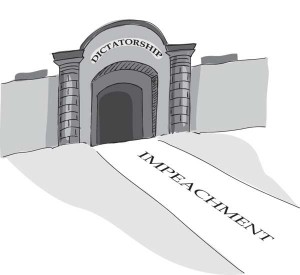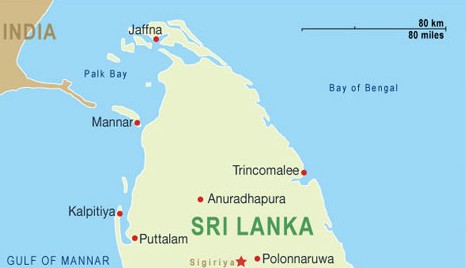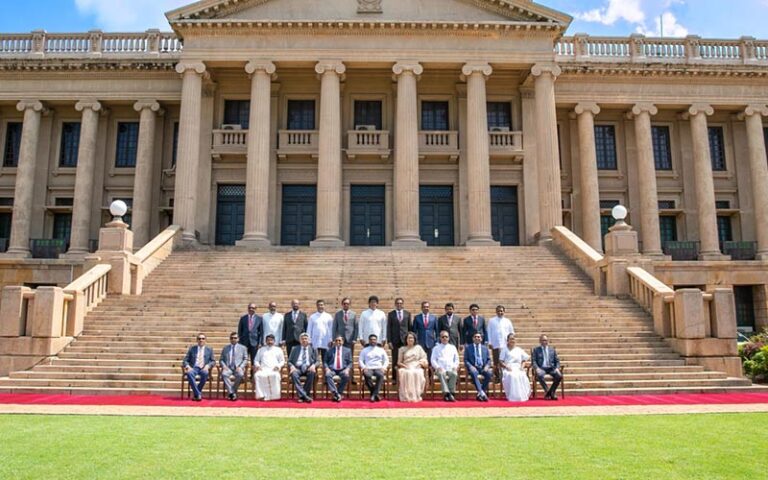 With orders of the Supreme Court and the Court of Appeal being blatantly if not crudely violated during the impeachment of Chief Justice Shirani Bandaranayake, right thinking people who uphold the rule of law are asking whether Sri Lanka has been turned into a lawless country.
With orders of the Supreme Court and the Court of Appeal being blatantly if not crudely violated during the impeachment of Chief Justice Shirani Bandaranayake, right thinking people who uphold the rule of law are asking whether Sri Lanka has been turned into a lawless country.
Opposition leaders are claiming that ‘Aluth Kade’ may be turning into ‘anduwe kade’ and whether the Rajapaksa regime, which virtually controls the Rajapaksa legislature, is now trying to complete its total grip on power by creating something like a Rajapaksa supreme court. National and international responses to the illegal and unconstitutional impeachment of the Chief Justice are growing. Though the outgoing president of the Bar Association of Sri Lanka appears to have wilted under pressure, 90% of the lawyers are bravely continuing their battle against what could be a fatal attack on the independence of the Judiciary, the rule of law and democracy.
While most western countries have strongly condemned the impeachment and some are moving for tough measures by the Commonwealth Ministerial Action Group, the United States warned the impeachment had seriously damaged Sri Lanka’s reputation, and might even affect foreign investments here. If the Commonwealth Action Group decides to suspend Sri Lanka, it will also mean the cancellation of the Commonwealth Summit scheduled to be held at Hambantota.
As Sri Lanka faces one of its greatest crises since independence, we need to ponder on the warning given by one of the greatest leaders of modem times.
One of India’s most respected leaders, Dr. Bhimrao Ramji Ambedkar of the untouchable Mahar caste – scholar, jurist and revolutionist who fought for the rights of the Dalits and other socially backward classes — addressing the Constituent Assembly in 1949, warned of three dangers to India’s future as a democratic republic. The first was the danger of the grammar of anarchy. The second was to observe the caution which John Stuart Mill had given to all who were interested in the maintenance of democracy, namely, not “to lay their liberties at the feet of even a great man, or to trust him with power which enables him to subvert their institutions”. There is nothing wrong in being grateful to great men who have rendered life-long services to the country. But there are limits to gratefulness.
His third caution was far more necessary in the case of India than in the case of any other country. For in India, Bhakti or what may be called the path of devotion or hero-worship, plays a part in its politics unequalled in magnitude by the part it plays in the politics of any other country in the world. Bhakti in religion may be a road to the salvation of the soul. But in politics, Bhakti or hero-worship is a sure road to degradation and to eventual dictatorship.
Source: Daily Mirror (Sri Lanka)
Image Courtesy of Daily Mirror (Sri Lanka)




